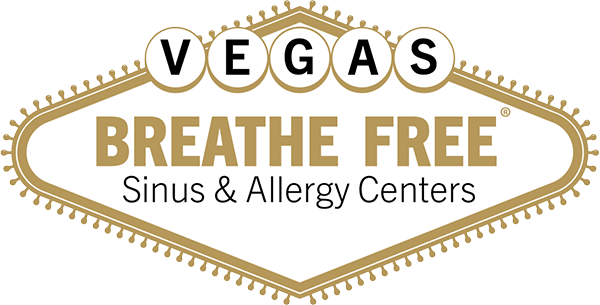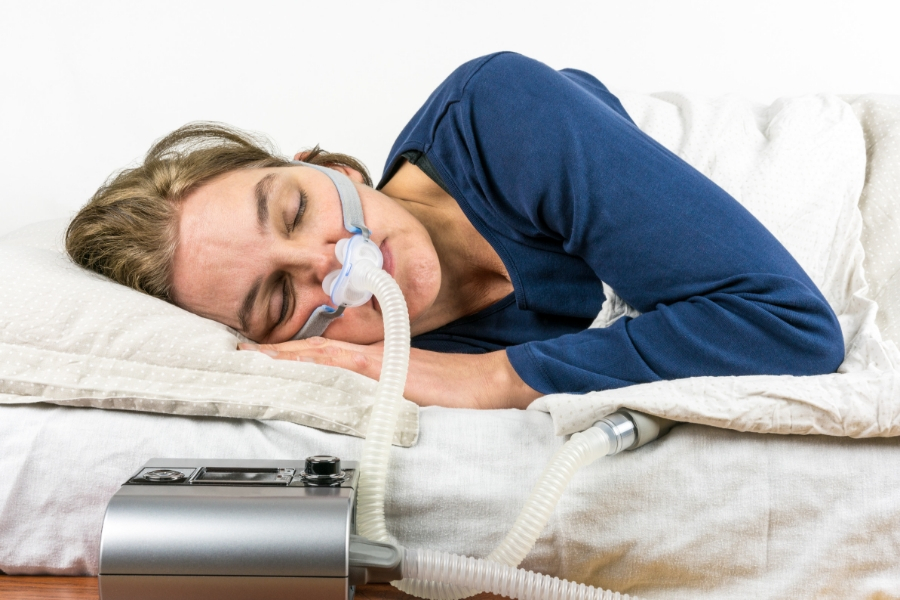‘Surgery’ is a scary word, but not nearly as scary as suffering through endless sinus pain. From sinus headaches to chronic congestion, sinus problems are rampant in people of all ages. For some, relief can be found temporarily through over the counter remedies, but for others, sinus surgery may be the only way out of the circle of sickness. There are usually a few key signs to look for when determining whether or not you need sinus surgery, and they don’t always link back to the same thing. Your sinus relief expert can determine exactly what’s going on but keep an eye out for these four signs you may need sinus surgery.
1. Chronic Sinus Headaches
The common cold is when most people experience the dreaded sinus headache, but it’s not the only cause. The splitting pain associated with a sinus headache is due to the buildup of bacteria in the sinus cavities (natural cavities in your skull behind your nose and eyes). When your face feels tender and won’t stop pounding, you may reach for a nasal spray or decongestant. While these help for a bit, the bacteria can get stuck in the sinus cavities and eventually lead to your head becoming a bacteria pressure cooker. Persistent or excessively painful sinus headaches can be cured with the help of sinus surgery. The most common treatment is balloon sinuplasty, a minimally invasive surgery which involves having a small balloon inserted into the sinus cavity and inflated to open it up manually and allow bacteria to drain out.
2. Nasal Obstruction
The nose is more complicated than you think. Instead of being a two-lane highway where you can either go one direction or the other, it’s a freeway with multiple lanes, routes, and purposes. Everything from your septum, turbinates, valve, and swell bodies need to work in tandem to make sure you can breathe properly. When any one of these experience issues, you experience nasal obstruction. Nasal obstruction, put very simply, is an inability to breathe normally. You shouldn’t have to think or struggle to breathe, but if anything goes awry in your nose you may find yourself dealing with a lot more trouble than you’d expect. Nasal obstruction makes it harder to sleep, breathe, and even eat (you can’t taste well if you can’t smell well). Fortunately, sinus relief experts are able to determine which part of your nose is having trouble and treat it through a variety of minimally invasive sinus surgeries.
3. Sleep Apnea
If you have trouble sleeping, it may be tied to your breathing. Sleep apnea is a medical term for when a patient has trouble staying asleep due to breathing problems. There are two main types: central and obstructive, and treatments are different for each one. Usually, when you sleep, breathing is automatic. If there’s a hindrance anywhere in the breathing cycle, the body’s oxygen level falls and the brain sends a more powerful signal to wake up (in the hopes breathing will return to normal). Central sleep apnea is less common, as it’s caused by the brain failing to signal to breathe in the first place. It can be treated with medication and often needs no sinus surgery, but obstructive commonly needs surgical intervention. With obstructive sleep apnea, there’s something preventing the body from getting enough oxygen (such as with an overweight patient needing more oxygen than a healthy weight person). While lifestyle changes (losing weight, quitting smoking, or not having as many glasses of wine a night) may reduce sleep apnea, surgical assistance is needed for a physical obstruction, such as trimming enlarged swell bodies.
4. Deviated Septum
The good news is you most likely know if you have a deviated septum (from an injury or accident). The bad news is its most likely causing your breathing trouble. As the problem child of the nose, the septum is a piece of cartilage which holds your nose straight. This support bridge holds up the nose so it can properly perform its function (breathing), but when it becomes crooked it can easily cause trouble. A crooked septum is a deviated septum; any time the septum lies off course it’s considered ‘deviated’ from its path. With a deviated septum, your breathing may become blocked. Your Vegas Breathe Free medical team can assist with determining whether or not the deviation will affect your life, and easily treat it with septoplasty sinus surgery to ensure every breath is as good as the next. To learn more about this and other sinus related problems and treatments visit https://www.vegasbreathefree.com/ or call Vegas Breathe Free at 702.312.3333






